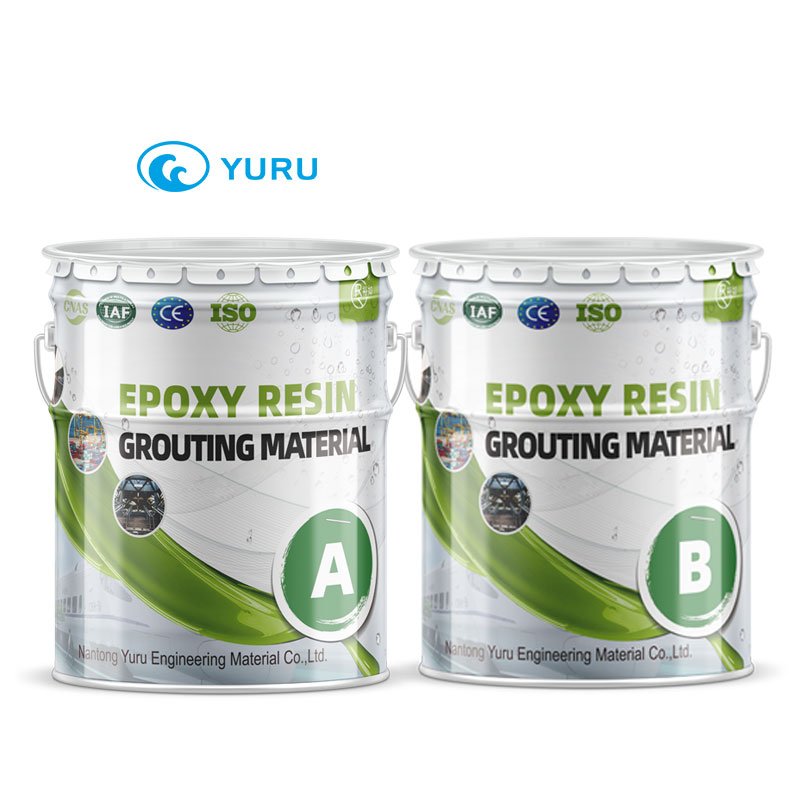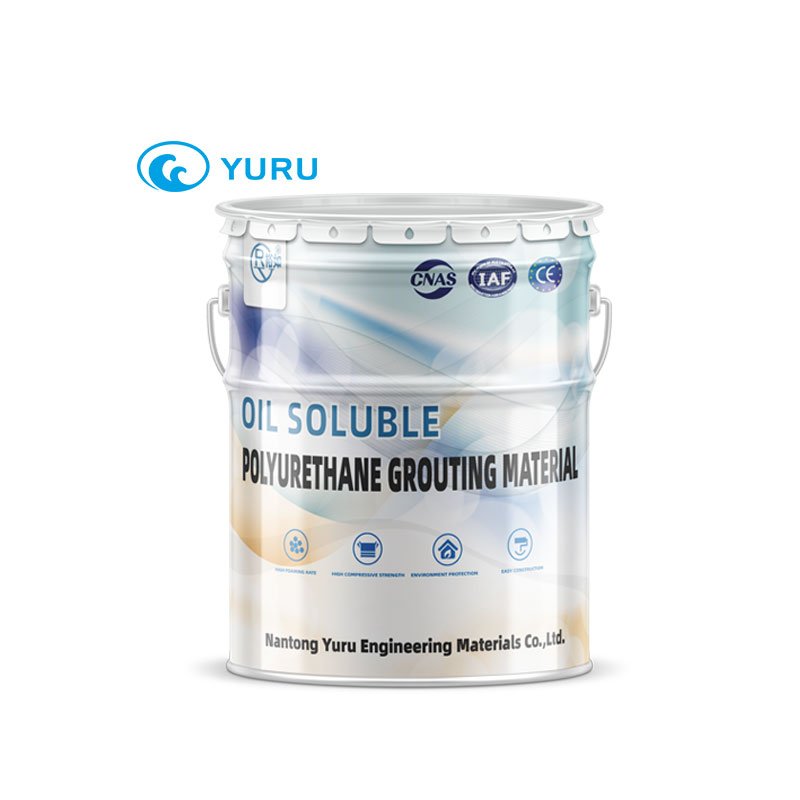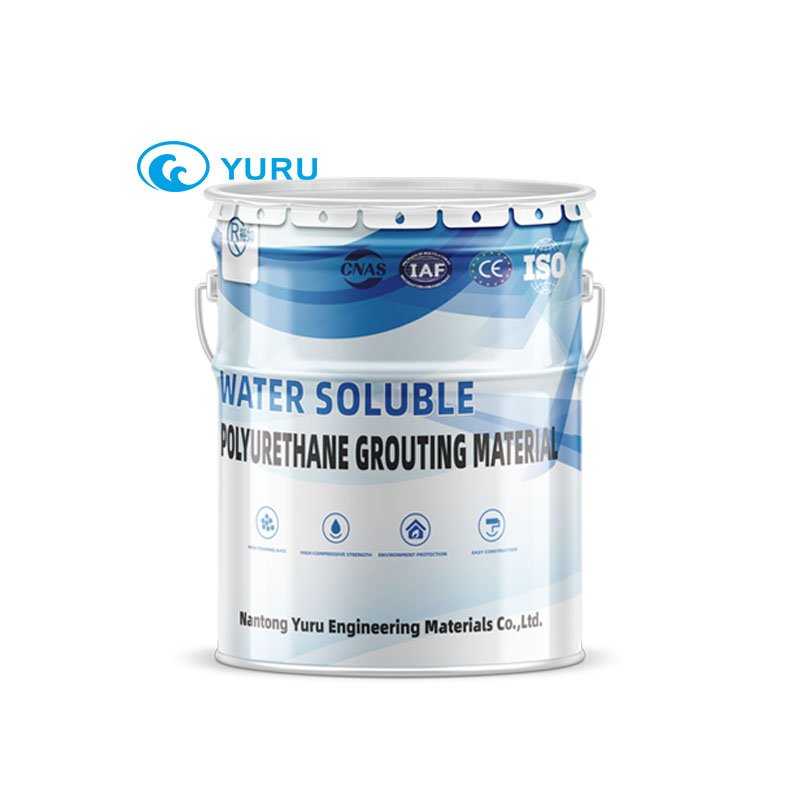Selecting the Right Epoxy Resin Injection Grouting Material
Introduction — Why Choosing the Right Epoxy Grouting Material Matters?
Selecting the correct epoxy resin injection grouting material is a critical decision for any contractor or engineer involved in structural repair and waterproofing projects. The choice directly impacts the strength, durability, and safety of concrete structures.
Every structure presents unique challenges — from fine cracks in bridges and tunnels to large structural joints in foundations and retaining walls. An inappropriate material can result in incomplete filling, poor adhesion, or even re-cracking under load.
In modern infrastructure projects, epoxy resin injection systems are widely regarded as one of the most reliable methods for permanent structural repair. Their chemical bonding ability, compressive strength, and moisture resistance make them ideal for both preventive maintenance and long-term rehabilitation.
Understanding how to choose the right formulation ensures better project performance, cost efficiency, and structural safety — which is exactly what this guide will help you achieve.


Understanding Epoxy Resin Injection Grouting Systems
Epoxy resin injection grouting is a process that uses a two-component reactive system consisting of epoxy resin and a curing agent (hardener). When mixed, the two components chemically react to form a rigid, high-strength polymer network capable of bonding tightly with concrete and steel.
This chemical structure provides:
- High compressive and tensile strength
- Excellent adhesion to dry and slightly damp substrates
- Low shrinkage during curing
- Long-term resistance to water, oil, and many chemicals
Epoxy injection grouting is primarily used for:
- Structural crack repair in beams, slabs, and columns
- Sealing joints in tunnels and retaining walls
- Reinforcing foundations or bridge decks
- Restoring integrity in industrial flooring and load-bearing concrete
Key Factors to Consider When Selecting Epoxy Injection Materials
Choosing the right epoxy system involves understanding both material characteristics and site conditions. Below are the essential parameters to evaluate before making a selection:
1. Crack Dimensions and Geometry
Microcracks (<0.1 mm) require low-viscosity epoxies to ensure full penetration, while larger cracks (up to 5 mm) may need higher-viscosity or thixotropic formulations.
2. Substrate Condition
Dry substrates allow for optimal adhesion. However, for damp or water-exposed concrete, special moisture-tolerant epoxy systems are required to prevent incomplete bonding.
3. Structural Role of the Crack
Determine whether the crack is structural (load-bearing) or non-structural (surface-level). Load-bearing cracks require higher compressive strength and rigid bonding.
4. Environmental Exposure
Epoxy systems used in marine or chemical environments must have chemical resistance and low water absorption to maintain performance over time.
5. Curing Time and Application Temperature
Different formulations react at different speeds. For rapid repairs in time-sensitive projects, fast-curing systems are ideal, while large-scale projects benefit from longer pot life for better workability.
6. Compatibility and Shrinkage
Always check for compatibility with concrete substrates and ensure minimal shrinkage to avoid internal stresses after curing.
7. Health, Safety, and Environmental Compliance
Select low-VOC, solvent-free, or eco-certified epoxy products to ensure compliance with environmental standards and workplace safety.
By carefully considering these parameters, contractors can minimize project risk, ensure quality performance, and extend the service life of repaired structures.


Types of Epoxy Resin Injection Grouting Materials
Epoxy injection materials are generally classified by their viscosity and performance properties. Understanding each type helps in aligning material selection with project requirements:
1. Low-Viscosity Epoxy Resin
- Penetrates ultra-fine cracks (<0.1 mm)
- Excellent flowability and low shrinkage
- Ideal for bridges, tunnels, and structural slabs
- Provides strong adhesive bonds and seamless repair
2. Medium-Viscosity Epoxy Resin
- Suited for 0.2–2 mm structural cracks
- Balances flowability with strength
- Offers impact and vibration resistance
- Commonly used in columns, walls, and industrial flooring
3. High-Viscosity Epoxy Resin
- Designed for large voids or cavities
- Prevents material runoff during vertical or overhead application
- Provides superior compressive strength and chemical resistance
- Applied in marine docks, wastewater plants, and dam structures
Each epoxy formulation can be tailored further for temperature tolerance, moisture resistance, or special curing profiles, depending on the construction environment.
Comparing Epoxy Resin Injection with Other Grouting Materials
Epoxy grouting systems stand out for their rigidity, strength, and long-term durability, but how do they compare to other commonly used materials?
| Feature | Epoxy Resin Grouting | Polyurethane Grouting | Acrylate Grouting | Polyurea Grouting |
|---|---|---|---|---|
| Primary Function | Structural Repair | Waterproofing | Microcrack Sealing | High Chemical Resistance |
| Crack Range | < 5 mm | 0.3–10 mm | < 0.2 mm | 0.5–5 mm |
| Bond Strength | Very High | Medium | Low | High |
| Load-Bearing Capacity | Yes | No | No | Yes |
| Service Life | 20+ Years | 10-15 Years | 5-10 Years | 15–20 Years |
From the table, epoxy injection materials clearly excel in load-bearing structural applications, while polyurethane and acrylic systems are better suited for flexible waterproofing or non-structural sealing.


Practical Tips for Selecting and Using Epoxy Injection Materials
When implementing epoxy injection in real projects, consider the following best practices:
- Verify Product Certification: Choose systems that meet standards.
- Confirm Substrate Compatibility: Conduct adhesion testing before full application.
- Maintain Environmental Control: Avoid injection under freezing or extremely humid conditions.
- Follow Correct Mixing Ratios: Inaccurate proportions can compromise curing strength.
- Use the Right Injection Pressure: Excessive pressure can propagate cracks or cause leakage.
- Ensure Complete Crack Filling: Use transparent hoses or flow meters for monitoring.
- Prioritize Safety: Wear protective gloves, goggles, and ensure adequate ventilation during mixing and application.
These procedures ensure consistent results and long-term structural stability.
YURU Waterproof — Expert Provider of Epoxy and Grouting Solutions
YURU Waterproof specializes in advanced injection and waterproofing materials for global construction, infrastructure, and civil engineering projects. Our epoxy resin injection systems are engineered for high strength, chemical resistance, and long-term reliability under demanding conditions.
YURU Grouting Product Line Includes:
- Epoxy Resin Injection Materials — For high-strength structural crack repair
- Water-Based Hydrophilic Polyurethane Grout — For sealing damp or water-leaking cracks
- Oil-Based Hydrophobic Polyurethane Grout — For dry crack injection and pressure sealing
- Acrylate Grouting Materials — For microcrack and soil sealing
- Polyurea & Microcrystalline Polyurea Grouting Systems — For high-durability industrial structures
All YURU products comply with ISO, CE, and REACH standards and can be customized for specific curing times, viscosity levels, or environmental conditions.
With our technical expertise and OEM/ODM production capabilities, YURU Waterproof supports contractors and project engineers in achieving efficient, sustainable, and reliable repair solutions across complex infrastructure environments.
Frequently Asked Questions
- What is epoxy resin injection grouting used for?
Epoxy injection grouting is used to repair structural cracks in concrete and restore load-bearing capacity. It creates a permanent bond that prevents further deterioration.
- Can epoxy grouting be applied on wet surfaces?
Standard epoxy requires dry conditions, but moisture-tolerant epoxy systems are available for damp environments.
- How long does epoxy injection take to cure?
Curing time varies by formulation — typically between 4 and 24 hours depending on temperature and humidity.
- Is epoxy grouting environmentally safe?
YURU Waterproof’s epoxy systems are low-VOC, solvent-free, and compliant with international environmental standards.
- What makes YURU Waterproof different?
YURU provides a complete range of epoxy and polyurethane systems tailored to different crack types, curing speeds, and environmental conditions, supported by expert technical assistance and global distribution.
Conclusion
Selecting the right epoxy resin injection grouting material is essential to ensure the safety, durability, and long-term value of concrete structures. When properly selected and applied, epoxy injection restores strength, seals cracks, and prevents further deterioration — extending the structure’s service life significantly.
For reliable performance and tailored material options, YURU Waterproof offers a full range of epoxy and polyurethane grouting materials engineered for professional contractors and construction projects worldwide.
YURU Waterproof — Trusted Solutions for Stronger, Longer-Lasting Structures.


YURU Product solutions
Waterproof Coating
- One-component oil-based polyurethane waterproof coating
- One-component water-based polyurethane waterproof coating
- Two-component polyurethane waterproof coating
- Two-component 6.0Mpa polyurethane waterproof coating
- Transparent Waterproof Glue
- Nano Invisible Waterproof Agent
- Silicone Waterproof Coating
- Acrylic Waterproof Coating For Metal Roof
- JS Polymer Waterproof Coating
- High Elastic Liquid Rubber Waterproof Coating
- Cement-based Penetrating Crystallization Waterproof Coating




